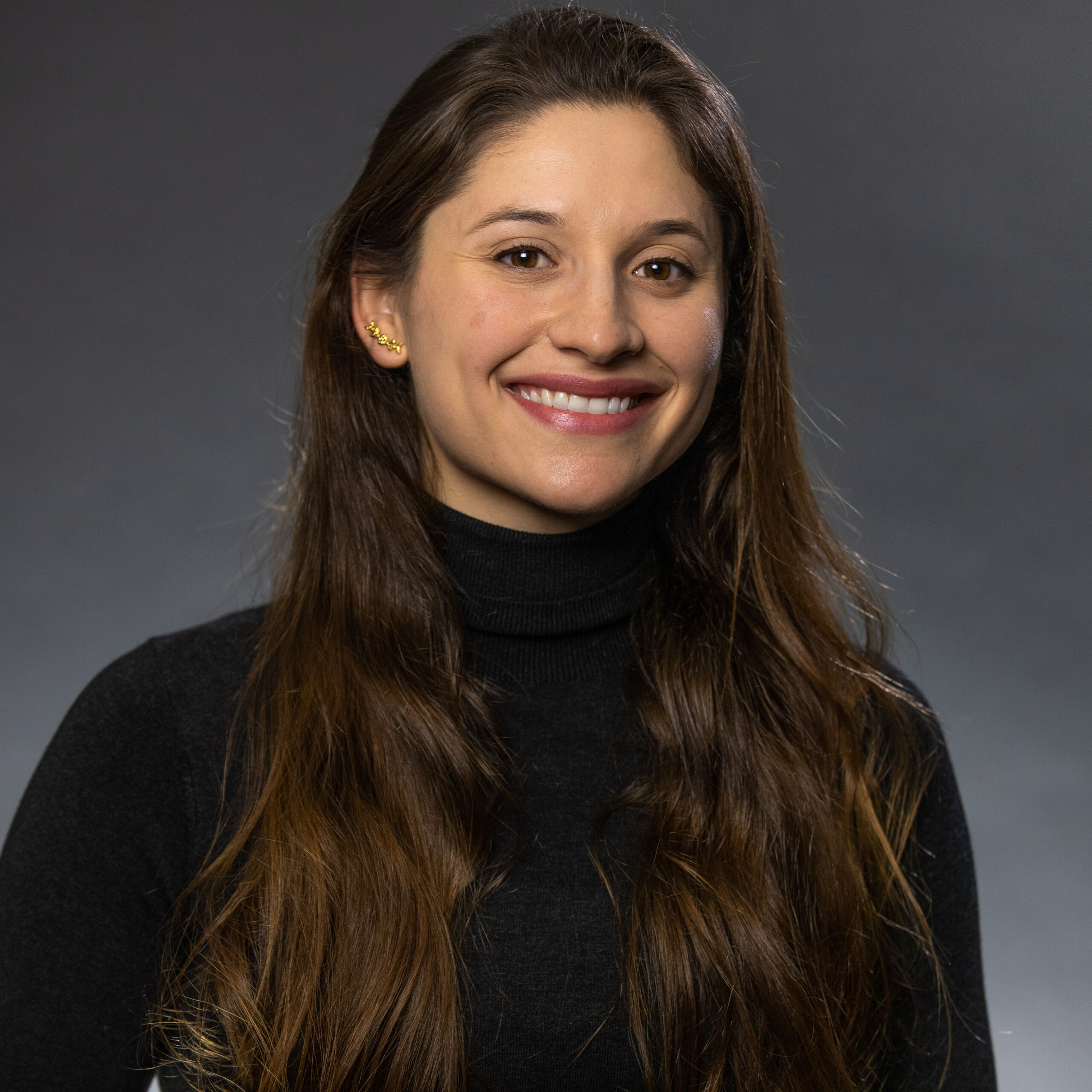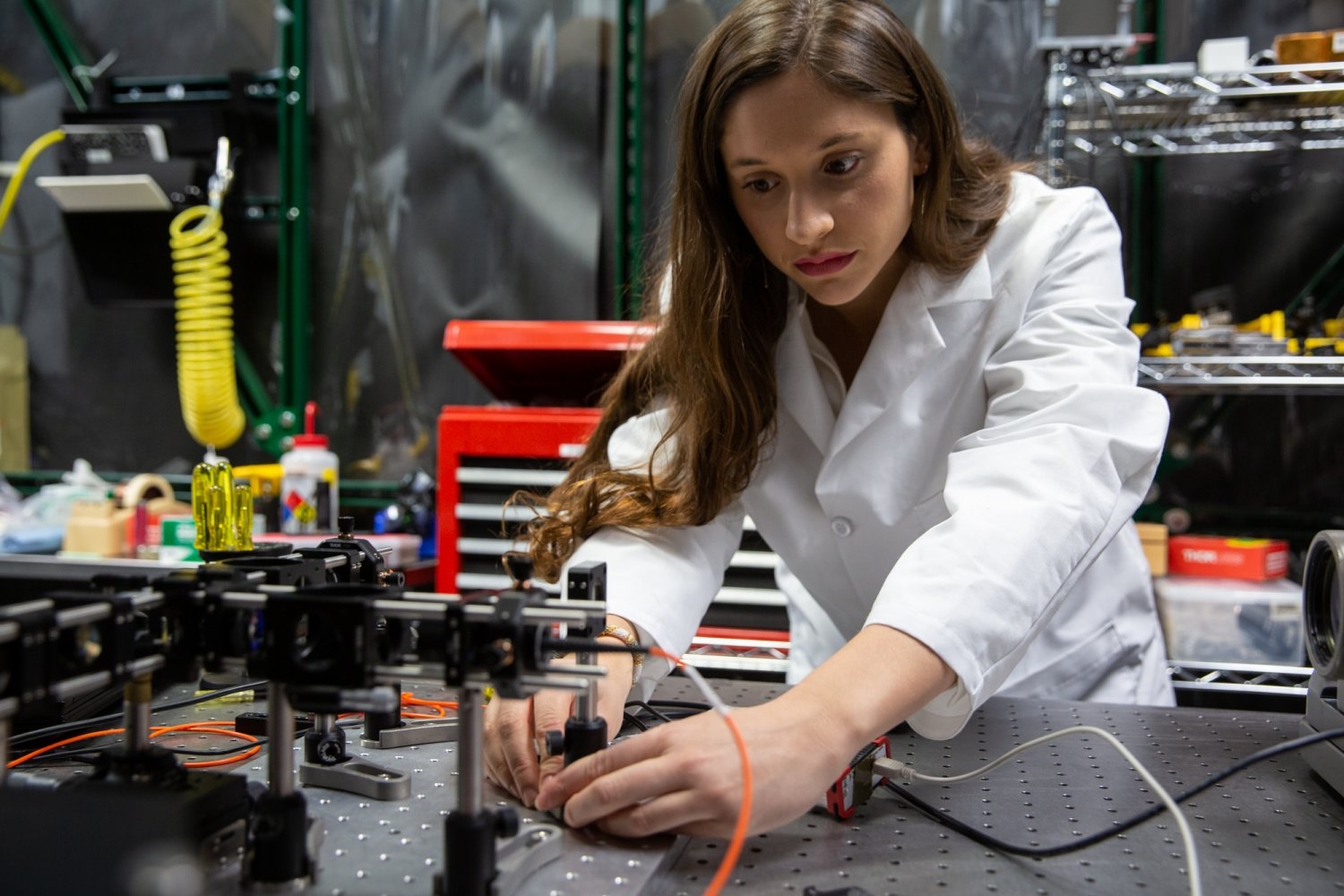Juliana García-Mejía, Pappalardo Fellow

Name: Juliana Garcia-Mejia
Title: Pegasi b Fellow, 2023-2026; Pappalardo Fellow in Physics, 2026-2028
Email: jgarciam@mit.edu
Phone: (352) 317-6673
Office:
MIT Kavli Institute for Astrophysics and Space Research
77 Massachusetts Avenue, 37-641
Cambridge, MA 02139
Related Links:
Pappalardo Fellowships in Physics
MIT Kavli Institute for Astrophysics and Space Research
Personal site
Area of Physics
Astrophysics Observation, Instrumentation, and Experiment (Instrumentation/Exoplanets/Low Mass Stars)
Research Interests
Juliana García-Mejía is broadly interested in developing novel astronomical instrumentation to enable the study of exoplanets, their atmospheres, and their low mass stellar hosts.
She is the PI of The Tierras Observatory, a new 1.3-m ultra-precise fully-automated photometer located atop Mt. Hopkins, Arizona. Having spent her entire Ph.D. building Tierras, she is currently focused on using the facility to uncover temperate terrestrial planets, search for Moons around exoplanets, and study their low mass stellar hosts.
Juliana is also pursuing the design of a high throughput, extremely-high resolution pathfinder spectrograph to enable narrow-wavelength atmospheric structure and velocity dynamic studies of exoplanets, and to expand cosmochronological and magnetic field studies of stars of varied spectral types. In the future, this instrument could enable the detection of molecular oxygen in a terrestrial exoplanet atmosphere.
In the News

MIT welcomes 2023 Heising-Simons Foundation 51 Pegasi b Fellow Juliana García-Mejía
MIT News Office, April, 4, 2023
Biographical Sketch
Although born in the US, Juliana grew up in the city of Medellín (Colombia) surrounded by a numerous and eclectic family of proud coffee growers and fitness entrepreneurs enamored with the night skies.
At age 15, Juliana decided to move back to the US on her own to finish high school and pursue a career in aerospace engineering. During her sophomore year at Harvard she discovered that building astronomical instruments, not rockets, was her true calling. She pursued numerous instrument-based projects at sub-mm wavelengths with Dr. Qizhou Zhang, and in the optical regime with Prof. John Johnson, Dr. Andrew Szentgyorgyi, and Dr. Jason Eastman at the CfA.
For her Ph.D. thesis supervised by Prof. David Charbonneau at Harvard, Juliana led the design, construction, commissioning and initial science operations of the Tierras Observatory. Tierras is an ultra-precise photometer to study low mass stars and their terrestrial planets.
Outside astronomy, Juliana’s interests reflect her whimsical upbringing. She has a growing coffee business where she sells her family’s goods, and can be found indoors reading sci-fi, or outdoors triathloning, hiking, and snowboarding depending on the season.
Selected Publications
- García-Mejía, J., Charbonneau, D., Fabricant, D., Irwin, J., Fata, R., Zajac, J. M., Doherty, P.E. “The Tierras Observatory: An Ultra-Precise Photometer to Characterize Nearby Terrestrial Exoplanets,” 2020, Proc. SPIE 11445, Ground-based and Airborne Telescopes VIII, 114457R.
- López-Morales, M., Ben-Ami, S., Gonzalez-Abad, G., García-Mejía, J., Dietrich, J., Szentgyorgyi, A., “Optimizing Ground-based Observations of O2 in Earth Analogs,” 2019, AJ, 158, 24.
- Ben-Ami, S., López-Morales, M., García-Mejía, J., Gonzalez-Abad, G., Szentgyorgyi, A., “High-resolution Spectroscopy Using Fabry-Perot Interferometer Arrays: An Application to Searches for O2 in Exoplanetary Atmospheres,” 2018, ApJ, 861, 79.